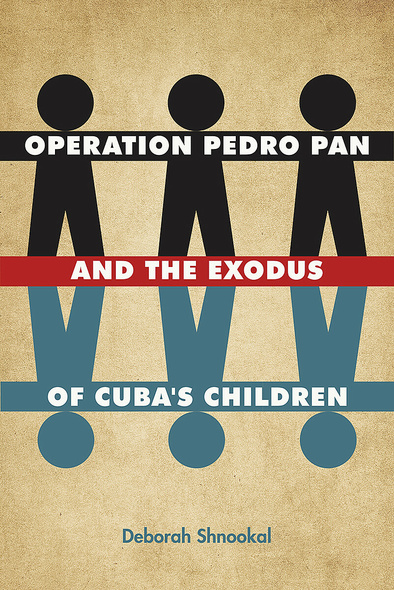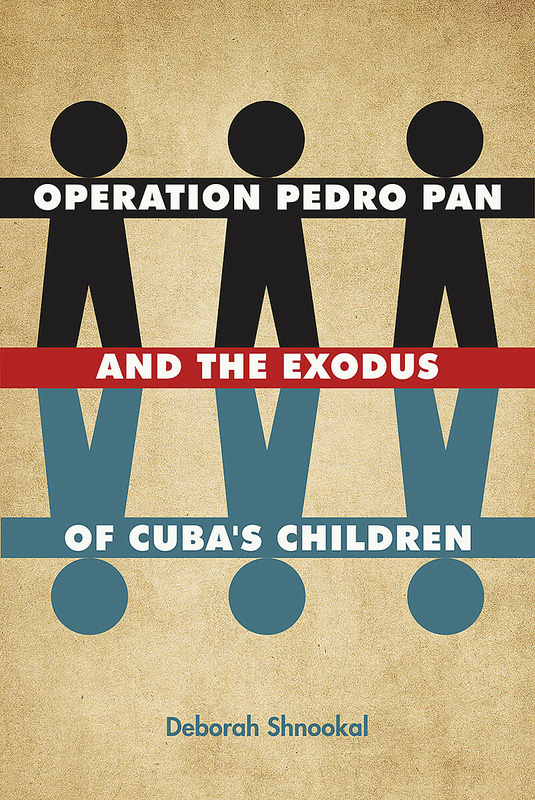
Operation Pedro Pan and the Exodus of Cuba's Children
This in-depth examination of one of the most controversial episodes in U.S.-Cuba relations sheds new light on the program that airlifted 14,000 unaccompanied children to the United States in the wake of the Cuban Revolution. Operation Pedro Pan is often remembered within the U.S. as an urgent “rescue” mission, but Deborah Shnookal points out that a multitude of complex factors drove the exodus, including Cold War propaganda and the Catholic Church’s opposition to the island’s new government.
Shnookal illustrates how and why Cold War scare tactics were so effective in setting the airlift in motion, focusing on their context: the rapid and profound social changes unleashed by the 1959 Revolution, including the mobilization of 100,000 Cuban teenagers in the 1961 national literacy campaign. Other reforms made by the revolutionary government affected women, education, religious schools, and relations within the family and between the races. Shnookal exposes how, in its effort to undermine support for the revolution, the U.S. government manipulated the aspirations and insecurities of more affluent Cubans. She traces the parallel stories of the young “Pedro Pans” separated from their families—in some cases indefinitely—in what is often regarded in Cuba as a mass “kidnapping” and the children who stayed and joined the literacy brigades. These divergent journeys reveal many underlying issues in the historically fraught relationship between the U.S. and Cuba and much about the profound social revolution that took place on the island after 1959.
Publication of the paperback edition made possible by a Sustaining the Humanities through the American Rescue Plan grant from the National Endowment for the Humanities.
“Exceptionally smart and timely. . . . This book offers a powerful reminder of the human cost of these politically motivated immigration experiments.”—H-Net“A strong contribution to the scholarship of U.S.-Cuban relations, and in addition, it contributes to our understandings of how young people have been used by states in contests over migration, power, and ideological commitment.”—Estudios Interdisciplinarios de América Latina y el Caribe
“The most complete, balanced, and best-researched book on Operation Pedro Pan. Engaging and beautifully written.”—Felix Masud-Piloto, author of From Welcomed Exiles to Illegal Immigrants: Cuban Migration to the U.S., 1959–1995“A fascinating, complex story. Shnookal has researched extremely widely, in the United States and Cuba alike, talking to protagonists in both countries. The thorny issue of Latin American migrant children in the U.S. has a long and tragic history, and Operation Pedro Pan is a significant part of this tale.”—Karen Dubinsky, author of Babies without Borders: Adoption and Migration across the Americas
“Telling the story from both sides of the Florida Straits, this book expertly contextualizes the experience of the Cuban Revolution’s youngest generation within the complex crosscurrents of the anti-Castro underground, the growing disaffection of the Cuban Catholic Church, and Washington’s propaganda war against the revolution.”—Michelle Chase, author of Revolution within the Revolution: Women and Gender Politics in Cuba, 1952–1962
“A compelling, wide-ranging, and in-depth study. Shnookal successfully mines a wealth of material on the Operation to develop a highly original and meticulously documented account. Shnookal carefully dissects the different perspectives and arguments raised by participants, observers, and scholars, and engages in rich and fruitful dialogue with all.”—Aviva Chomsky, author of A History of the Cuban Revolution
Deborah Shnookal is a research fellow at the Institute of Latin American Studies, Melbourne, Australia. She is coeditor of José Martí Reader: Writings on the Americas and Fidel Castro Reader




